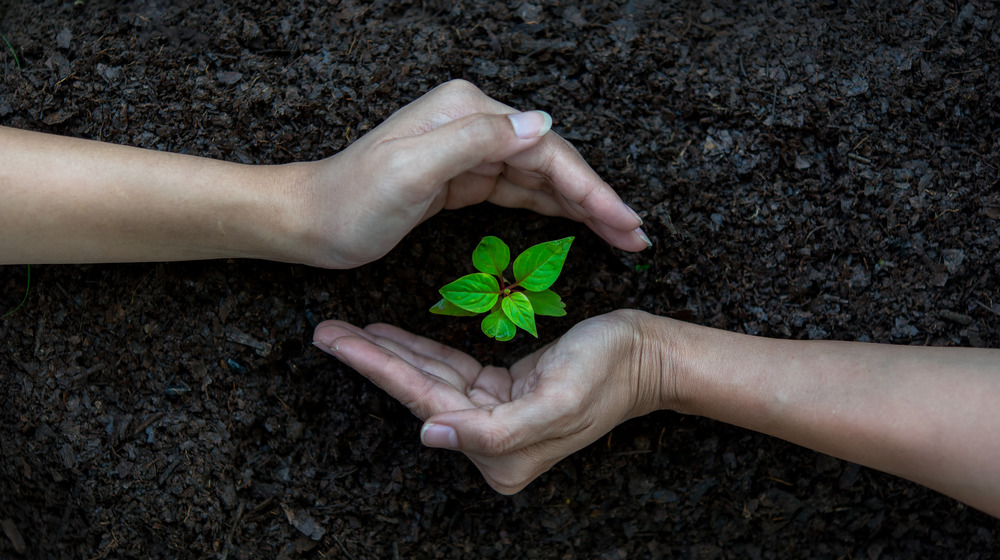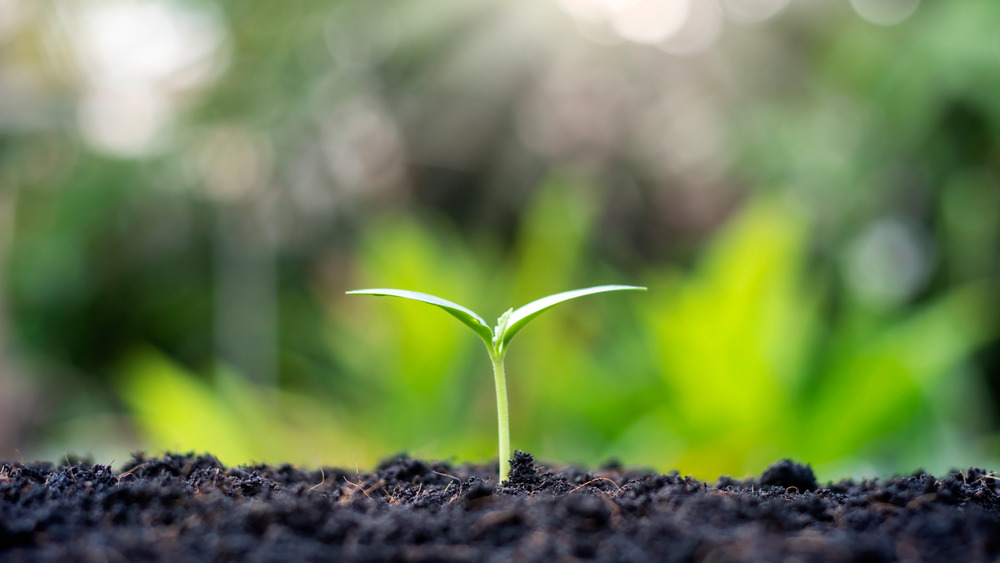What Really Happens At A Human-Composting Funeral Home
Plenty of folks have taken to composting in recent years, as opposed to simply throwing organic matter into the bin. Toss in some eggshells to add calcium, help plants grow faster, and keep away pests, as Gardening Knowhow tells us. Avocado peels add "woody ingredients" that "open up the structure" of the compost and allow in air, as Rolypig says. Toss in some carrot tops (not the comedian, although maybe not a bad idea) for decorations or an essential "green" element, also per Rolypig. And how about deceased human beings? Would they also provide an essential green element?
Composting an entire person isn't as simple as adding some nutritional value to your veranda garden. But admittedly, it does offer a much-needed alternative to stuffing another of the world's 7+ billion people into the ground and imagining them liquify in a casket over the forthcoming decade, or incinerating them in a crematory pyre that sends up a gazillion tons of carbon dioxide into the atmosphere every year, as National Geographic explains. Seeing as how the average funeral cost for a burial — $7,000-$12,000, per Lincoln Heritage Funeral Advantage – is high enough to send some into debt, it might be worth checking out being composted, instead. Recompose, according to The Columbian, is a composting service located in Kent, in western Washington State. It's the country's first "full-service human-composting funeral home." Recompose charges $5,500 for everything, including picking up the body from within the three adjoining counties, although arrangements can be made for transport from farther away at extra cost.
Laid into a 'vessel' full of soil
But what exactly happens to you if you're composted? What's your body's ultimate fate beyond "ashes to ashes, dust to dust"?
Recompose is the first human composting service of its kind, so bear in mind that any and all information about human composting is limited to this one business and its particular practices. As the FAQ on their website says, Recompose refers to its process as "natural organic reduction (NOR)," and takes into account artificial limbs, implants, and metal fillings (they're recycled when possible), drugs in the body (they molecularly break down), and disease (rendered harmless due to the high temperatures of 120-160 degrees Fahrenheit). The process was made legal only as recently as May 2020, after intensive lobbying.
And the process itself? Recompose has 10 "vessels," each described as "a hexagon enclosing a steel cylinder full of soil." A body is "laid in," as CEO Katrina Spade says, in a "very controlled process, completely driven by microbes ... fueled by plant material and monitored in a very rigorous way." Family members can view this process online, or after the pandemic, in person. The dead lay for 30 days while being slowly turned (like all compost), then "another few weeks in 'curing bins,'" where soil releases oxygen. There are tubes to and from each container to control the environment and ensure that no smells are emitted.
The deceased completely vanish into their soil. Family can then retrieve the soil or donate it to "an ecological restoration project at Bells Mountain near Vancouver, Washington."

